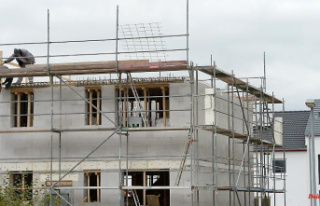It has been almost a year since prominent journalist de Vries was murdered in Amsterdam. Now the perpetrators are going to court. There is no lack of evidence. But who is really behind the bloody deed?
Shots are fired in the middle of Amsterdam. It's July 6, 2021, around 7:30 p.m. A man collapses on the Lange Leidsedwarsstraat, two bullets hit him in the head. It is the prominent crime reporter Peter R. de Vries. He succumbed to his injuries nine days later at the age of 64.
The assassination hit the Netherlands like a shockwave and brutally showed many how strong the stranglehold of organized crime is. Prime Minister Mark Rutte speaks of "an attack on free journalism ... on the rule of law." Now, almost a year after the bloody crime, the two alleged perpetrators are being tried. But it probably only hits henchmen.
The shock was replaced by a bitter realization: you don't get the real masterminds. There's little doubt: the reporter fell victim to a brutal drug gang. And the two defendants probably only carried out one order. They were caught on the freeway less than an hour after the crime. The 36-year-old Pole Kamil E., who lives in Maurik in the south-east of the country, is said to have driven the getaway car, and the 22-year-old from Rotterdam shot Delano G.
"We have strong evidence against the two suspects," says prosecutor Mara van den Berg. Two weapons were found in the getaway car, a Renault Kadjar. A submachine gun and a modified flare gun, the murder weapon. There is DNA evidence, camera images, fingerprints, witness statements. "And there is even an eyewitness to the fact." Cell phones with coded messages were also found in the car, documents of cold-bloodedness and unscrupulousness.
The reporter's family and friends were horrified when the prosecution presented the texts to them. According to the prosecution, the two men communicated in Polish and Dutch with an unknown person. On the day of the attack, he had sent photos of Peter R. de Vries: "You must have this dog."
"I'll do it solo," Delano G. is said to have replied. "I finish this." After the murder, he sent reports to the unknown. Both men are said to have been seen at the scene days beforehand, presumably to scout out the situation. It was known that after filming the TV show in the studio, the reporter walked to his car in a nearby garage - without bodyguards. But who was this stranger who is only indicated in the trial files with the code NN-*4229? And is he the mastermind?
The two accused remain silent. Delano G. says nothing and Kamil E. insists that he has nothing to do with the matter. "I didn't kill anyone and I didn't see a gun," he testified at a preparatory meeting. He was only supposed to take someone from Rotterdam to Amsterdam and pick them up again. But the investigators are convinced that the broad-shouldered Pole can be identified by his eye-catching tattoos on the camera images.
There are many indications that the internationally notorious drug gang of Moroccan Dutchman Ridouan Taghi was responsible for the murder. The 44-year-old is currently being tried with 16 others in Amsterdam for several murders and attempted murders. The prosecution speaks of a "oiled murder machine".
"Everyone who unpacks has to sleep," is a well-known saying by Taghi. Sleeping means killing in jargon. But one unpacked. Nabil B. became key witness against Taghi. His brother was murdered for this in 2018, his lawyer a year later, and then Peter R. de Vries, who was Nabil B’s confidante.
The reporter was well respected as an uncompromising fighter against crime. But that also put him in the crosshairs. And yet he refused personal protection. "You can't dodge a bullet with your name on it," he had said. But why other security measures were not taken is one of the big open questions. For too long, the Netherlands refused to admit that they are one of the biggest hubs for hard drugs, and therefore a hotbed of organized crime. There is no risk involved in the process: all 88 witnesses remain anonymous. The names of the prosecutors are also not allowed to be mentioned. The fear of further attacks is great. Because now you know, these gangs will stop at nothing.












